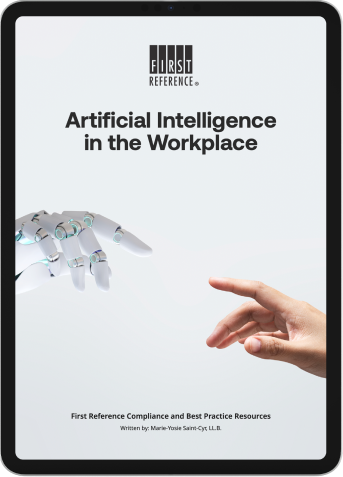
What You’ll Learn
By now, you’ve heard all about the benefits of AI in the workplace. Used well, it can improve efficiency, productivity, decision-making, and free up employees to work on more creative and strategic tasks.
However, you may be less familiar with its potential drawbacks. As AI becomes more prevalent in the workplace, there are many ethical implications for employers to consider, such as:
- AI has the potential to unintentionally reinforce unfairness, bias and discrimination.
- The potential for generative AI to compromise an individual’s privacy by exposing personal data to breaches or through other forms of unauthorized access or misuse.
